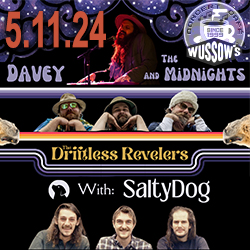Suicide Peaks with the Tulips and Lilacs
The drive back from the VFW Hall in central Minnesota was cold, and the snow falling in the dark January night covered the road. I couldn’t tell whether I was drifting too far across the median or too close to the shoulder until I crossed the rumble strips. I probably should have left earlier, but to be honest, it’s dark after 4 p.m. when you are so far north in winter.
Drinks were cheap and not very strong. The bartender didn’t know how to make a Manhattan. I needed to drive home, so I alternated each drink with a glass of water. My friend’s apartment was just blocks away, so she could walk, even if I didn’t offer her a ride. And if I offered, she’d never take it.
We’d met at 9:30, when the jazz trio took the stage (the stage was a wooden platform four inches higher off the ground than the rest of the bar). She and I weren’t particularly close. If we had been, I might not have made the trip. My wife had moved out that morning. It’d been a separation a long time coming, but it still wasn’t something I was ready to talk about. I needed a friend who was not so close that she knew the reason my life was changing. I needed a friend I could talk to about nearly anything except the separation. I wanted someone to drink with, without sharing why I needed a drink.
By 11:30 the band had finished playing and the only sounds were the chatter of the crowd dwindling. I was nursing a coffee before the drive home, coffee that had the bitter taste coffee gets when it’s been sitting on the burner since dinner time. We talked about the cold. She turned to me and said: “People just don’t get how easy it would be.”
I thought I’d lost track of the conversation somehow. “How easy what would be?”
She spun the half-empty cocktail glass in her hands, nervously. Maybe part of her was sorry for bringing it up. I can’t pretend to know what she was feeling in that moment; it was more vast and complex, I think, than I understood, probably more vast and complex than I understand, even today.
“How easy it would be to just walk into the cold and go to sleep.”
I didn’t really know what to say. She continued. “I mean, if you live in other places … you need to actively hurt yourself. But here, in January, you just go outside and go to sleep.”
She hadn’t made eye contact with me in a while, and this worried me. But she inhaled deeply and turned toward me. She didn’t quaver, and I swear she didn’t blink. I was the one who turned away first. I stared into my cup as if the coffee were tea and the tea leaves could be read to tell me what to say or feel. We talked a little more, about mundane things, really, paid our tabs and then I slipped into my car. I followed her on the the block-and-a-half walk to her home, rolling along at idling speed behind her.
More than ever, I wanted her to be safe before I headed for home. I wanted to be sure she came inside from the cold.
* * *
Seasonal studies of suicide focus on the spike in the number of suicides that occur in spring. As
David Dobbs noted in the New York Times, “On average, about 700 Americans kill themselves each week — but in the fine-weather weeks of May and June, the toll rises closer to 800, sometimes higher. Every year, suicide peaks with the tulips and lilacs.” According to Vladeta Ajdacic-Gross and a team of researchers, “Two suicide methods, that is, jumping from high places and being run over by a train, have the highest associations with temperature.”
The research claims that “it seems that outdoor suicides depend on agreeable temperatures and, in some suicide methods, this issue is particularly relevant in winter.” Research focusses on the diminishing number of attempts to commit suicide in the cold months. They do not focus on the means of suicide that are only available in winter. Maybe you need to live here to see those possibilities.
* * *
Three days later, I was out to dinner with friends, a married couple I’ve known since they were both students at the college where I teach. When we get together, we talk for hours. That night my friends were considering their options. His contract was ending at a local TV station. I would have seen this as a moment of insecurity; I would have been anxious. But, as young people tend to, they saw this as an opportunity to try something new. I envy young people and their ability to encounter uncertainty that way.
I mentioned my trip to the VFW, mentioned my night listening to jazz and talking with my friend.
I’d never thought about life in Duluth in this light, and I wondered whether this insight into suicide might change how I feel about living here. I’d never thought about my friend in this light, and I wondered what this meant for our friendship.
He put his drink down. “It happens more than you think.”
“What do you mean?”
He picked up his cell phone and began turning it in his palm — a nervous habit. “When I see a car parked on the side of the road,” he said, and he could not complete the sentence. “We monitor the police scanners at the TV station, and when the police are sent to check out an abandoned car connected to a missing person, sometimes, we follow to see if there’s a story.” He sipped his drink, recovering the detachment, I think, of a news professional. “There almost never is; we only report suicides if it’s a public figure.”
She leaned in. “You were called out on one this week, weren’t you?” It was a factual question.
He turned to her. “On the east side of town. Someone parked a car, walked out and went to sleep.”
She closed her eyes. I couldn’t tell what she was struggling to remember. She spoke, slowly.
“As freezing persons recollect the snow — First chill, then stupor, then the letting go.” I had no idea what she was talking about, and when she opened her eyes, she could see the confusion on our faces.
“Emily Dickinson,” she said. She pulled the text up on her phone.
After great pain a formal feeling comes—
The stiff Heart questions—was it He that bore?
The nerves sit ceremonious like tombs;
And yesterday—or centuries before?
The feet, mechanical, go round
Of ground, or air, or ought,
Regardless grown,
A quartz contentment, like a stone.
This is the hour of lead
Remembered if outlived,
A wooden way
As freezing persons recollect the snow—
First chill, then stupor, then the letting go.
I wish I could say that the poem helped me understand. But at that moment I didn’t know how to speak. I was no longer puzzled. I was growing numb.
I felt like someone who had discovered the house he had lived in for a decade had a sub-
basement, filled with sprawling tunnels, dark and damp and impossible to see from the top of the stairs. Some dark, secret sadness that I could not entirely comprehend was becoming visible to me. Moreover, people I have held close to my heart shared this secret sadness in ways I did not understand.
Recommended Links:
Leave a Comment
Only registered members can post a comment , Login / Register Here














No Comments